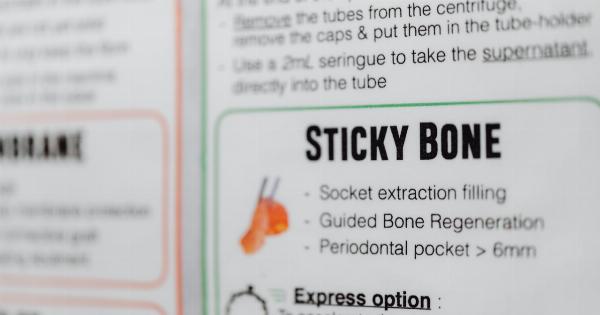Men who experience premature ejaculation often wonder what could be causing their condition. One possible culprit that many overlook is stress. Stress is a fact of life, but too much stress can have negative consequences, including sexual dysfunction.
Let’s explore the possible connection between stress and premature ejaculation.
What is Premature Ejaculation?
Premature ejaculation is one of the most common sexual problems that men experience. It is defined as the inability to control ejaculation long enough to satisfy both partners during sexual intercourse.
Typically, premature ejaculation is diagnosed when a man ejaculates within one or two minutes of penetration.
What Causes Premature Ejaculation?
The cause of premature ejaculation is unknown, but it is believed that both psychological and biological factors may be involved. There are several factors that may contribute to premature ejaculation, including:.
- Physical symptoms such as inflammation or infection of the prostate or urethra
- High levels of anxiety or depression
- Relationship problems or marital conflict
- Stressful lifestyle habits such as drug or alcohol abuse, smoking, lack of exercise, and unhealthy eating
- Nervous system damage from surgery, injury, or medication
What is Stress?
Stress is a natural physical and mental response to life’s events. Whether negative or positive, stress can affect your health in many ways. Stress is the body’s way of responding to any demand or threat.
When you sense danger real or imagined, the body’s defenses kick into high gear in a rapid and automatic process. Defined in simpler words, stress is your body’s response to a stimulus that disturbs your physical or mental equilibrium.
When this occurs, your body goes into a fight or flight mode where it releases hormones such as adrenaline and cortisol to prepare for a quick response.
Can Stress Contribute to Premature Ejaculation?
Yes. Stress can cause a wide range of physical and mental problems, including sexual dysfunction. Stress causes chemicals in the body to change, which in turn affects the nervous system.
When the nervous system is affected, it can cause a man to lose control over his ejaculation. Stress increases tension in the body, which can make it difficult to perform sexually. When a man experiences stress, he may have difficulty relaxing, which can contribute to the problem of premature ejaculation.
What are the Symptoms of Premature Ejaculation?
The most obvious symptom of premature ejaculation is the inability to control ejaculation during sexual activity. Other symptoms that may accompany premature ejaculation include:.
- Anxiety, depression, or other emotional distress related to sexual performance
- Lack of sexual pleasure or satisfaction
- Frustration with sexual performance
- Difficulty maintaining an erection
How Can You Manage Stress and Premature Ejaculation?
If you are experiencing premature ejaculation due to stress, there are several things you can do to manage your condition:.
- Reduce stress: Find ways to relax and reduce stress, such as deep breathing, meditation, and yoga.
- Talk to your partner: Discuss your concerns and seek support from your partner.
- Use condoms: Condoms can help reduce sensitivity, which can help you last longer during sex.
- Use distraction techniques: Try thinking about something else during sex to help you last longer.
- Practice healthy habits: Adopt healthy lifestyle habits such as exercise, a healthy diet, and moderate alcohol consumption.
When to See a Doctor
If you are experiencing premature ejaculation and it is causing distress in your life, it may be time to see a doctor. A doctor can help diagnose the problem and recommend treatment options.
The Bottom Line
Stress is a common cause of premature ejaculation in men. By understanding the connection between stress and premature ejaculation and adopting stress-reducing behaviors and habits, you can manage your condition more effectively.
If you continue to struggle with premature ejaculation, speak with a healthcare professional, who can provide more guidance and support.































